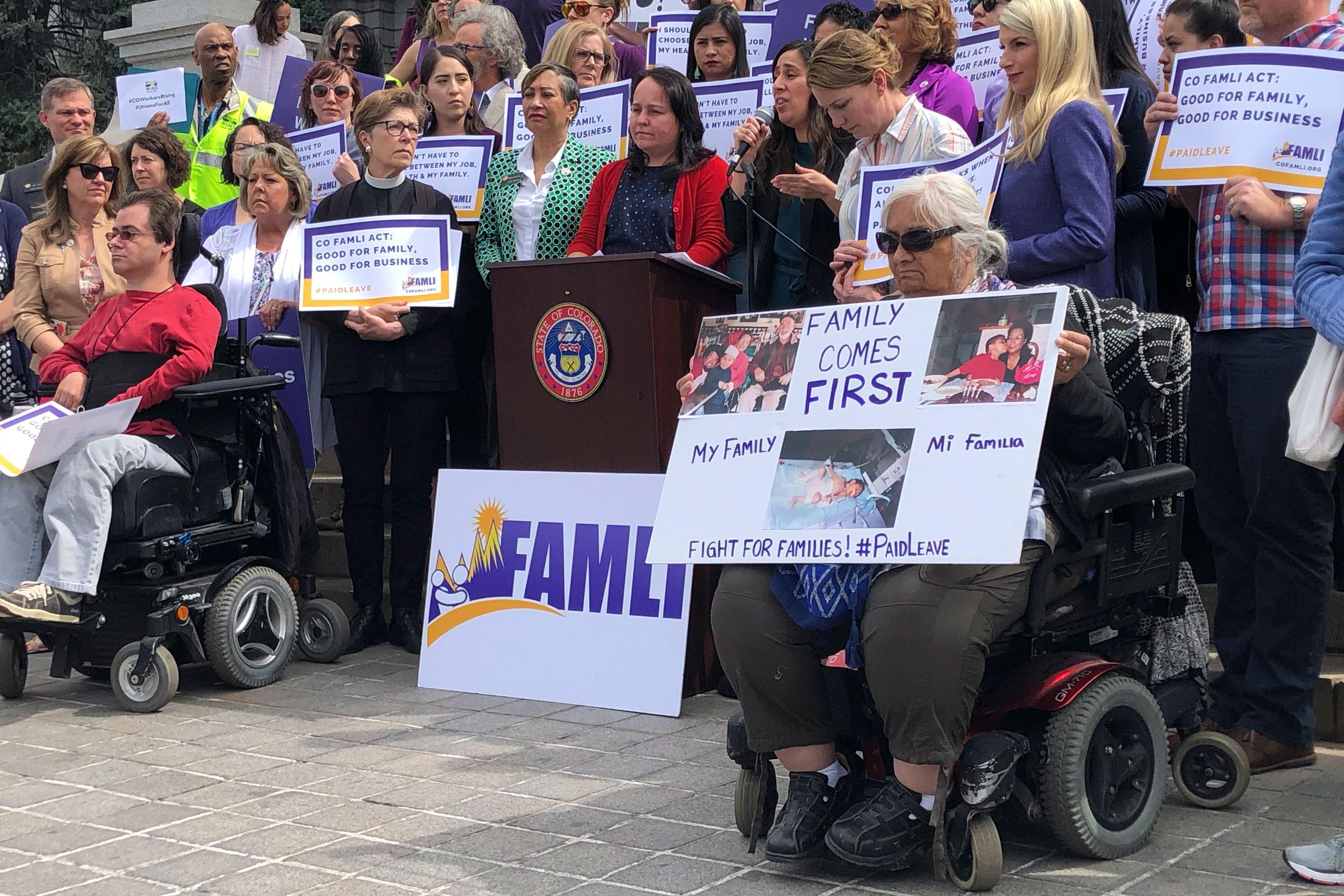

Colorado lawmakers are considering an ambitious paid family leave bill Tuesday that's opposed by most major business chambers in part because their members would have to contribute to a state fund, even if they offer their own benefits.
The state Senate Finance Committee will eye possible amendments to the bill that would create a state-run paid family and medical leave program so employees can take time off to care for newborns, themselves or others in medical and other emergencies without worrying about their jobs.
Its Senate sponsors, Sens. Angela Williams and Faith Winter, insist it's a vital initiative as majority Democrats and first-term Gov. Jared Polis are prioritizing a broad range of health issues.
Williams, a former small business owner, said many small businesses support the bill because it would increase worker productivity and retention.
She and Winter told a rally outside the statehouse that the bill will allow mothers to nurture their newborns and cancer patients to keep up with chemotherapy without financial pressure to get back to work.
"Yes there's a cost to this policy — but there's also a cost to not doing anything," Winter said.
Cosponsor Angela Williams up next.
"We have met, we have met, we have met and we have met with businesses...and they want paid family leave." pic.twitter.com/qqFEoZn2TK
The federal Family Medical Leave Act generally allows employees to take up to 12 weeks of unpaid leave and retain their health coverage at firms with more than 50 workers. The state bill would create a fund to pay a percentage of wages during a leave.
Several states, including California, New Jersey, New York and Rhode Island, run their own leave programs largely funded by payroll deductions, according to the National Council of State Legislatures. Washington state and Washington, D.C., plan to launch programs in 2020.
State plans often exempt small employers and firms that offer their own leave benefits. Some allow workers to opt in through payroll deductions, even if their employers don't participate. Eligibility requirements vary, with some states requiring a year of employment before someone can take such leave.
As drafted, the Colorado bill requires employers and employees to contribute equally to a state fund that, by fiscal year 2020-21, could reach $922 million, according to legislative analysts. Bond revenue would help launch the fund, to be administered by the Department of Labor and Employment.
The bill accommodates up to 12 weeks leave, with up to $1,000 a week in benefits, depending on income. Premium payments would begin in 2021 with the first benefits available in 2022.
Someone earning between $12,001 and $20,000 a year would pay from $38 to $64 a year into the fund. Employees earning $60,001 to $80,000 annually would pay from $192 to $256 a year. Employers would match those premiums.
Loren Furman, a senior vice president with the Colorado Chamber of Commerce, listed a host of concerns about the bill, saying there are no exemptions for small employers; discounted contributions for local governments and other public entities would shift the cost burden to the private sector; and users would only be required to be employed for 17 weeks, rather than a year, to be eligible.
In addition, employers with their own programs may be required to get state approval for those plans — and pay the state to do so, Furman said.
"Many of our employers already offer 'Cadillac-type' benefits to their in-state employees," she said.
Most other states with leave programs had a state disability program to build onto, but Colorado doesn't, she added.
Several small business owners testified last month against the bill, arguing it would be expensive and difficult to hire a temporary replacement with skill sets matching someone on leave.
Diane Schwenke, chief executive officer of the Grand Junction Area Chamber of Commerce, wondered how it would apply to the thousands of seasonal agricultural workers in her area.









